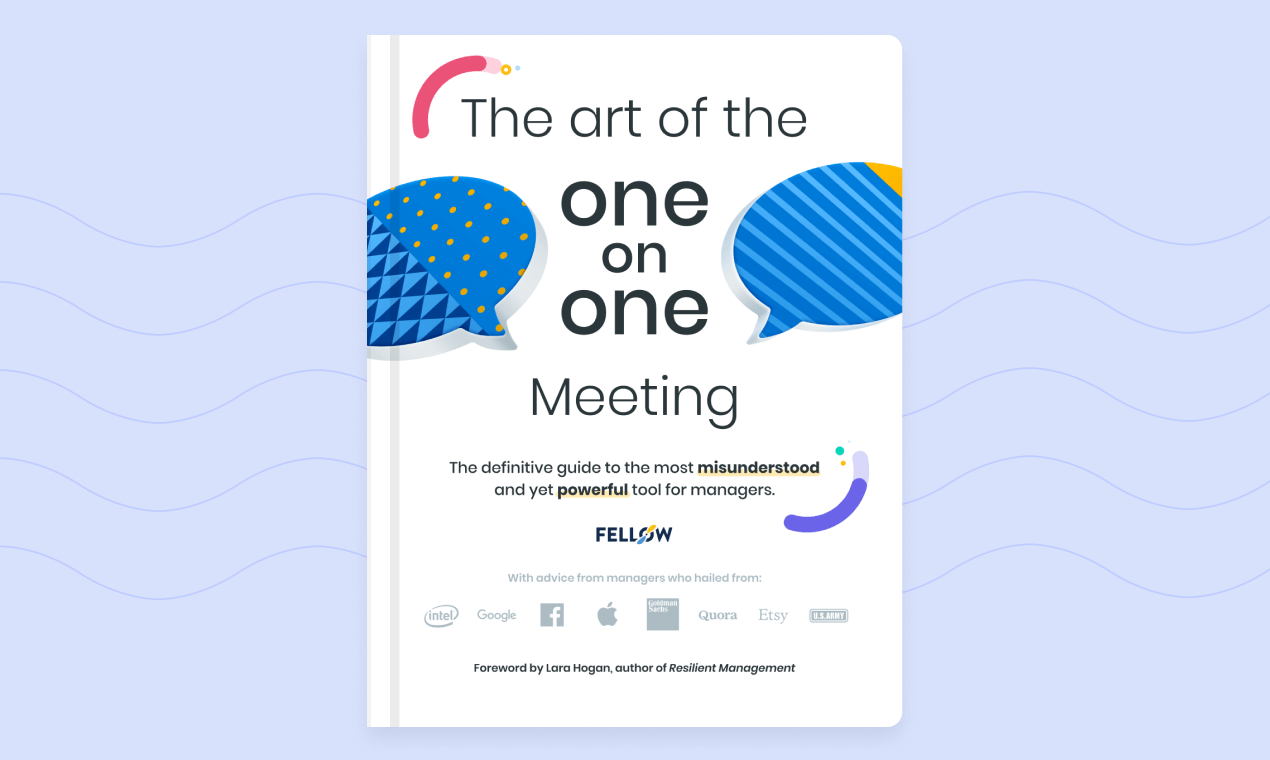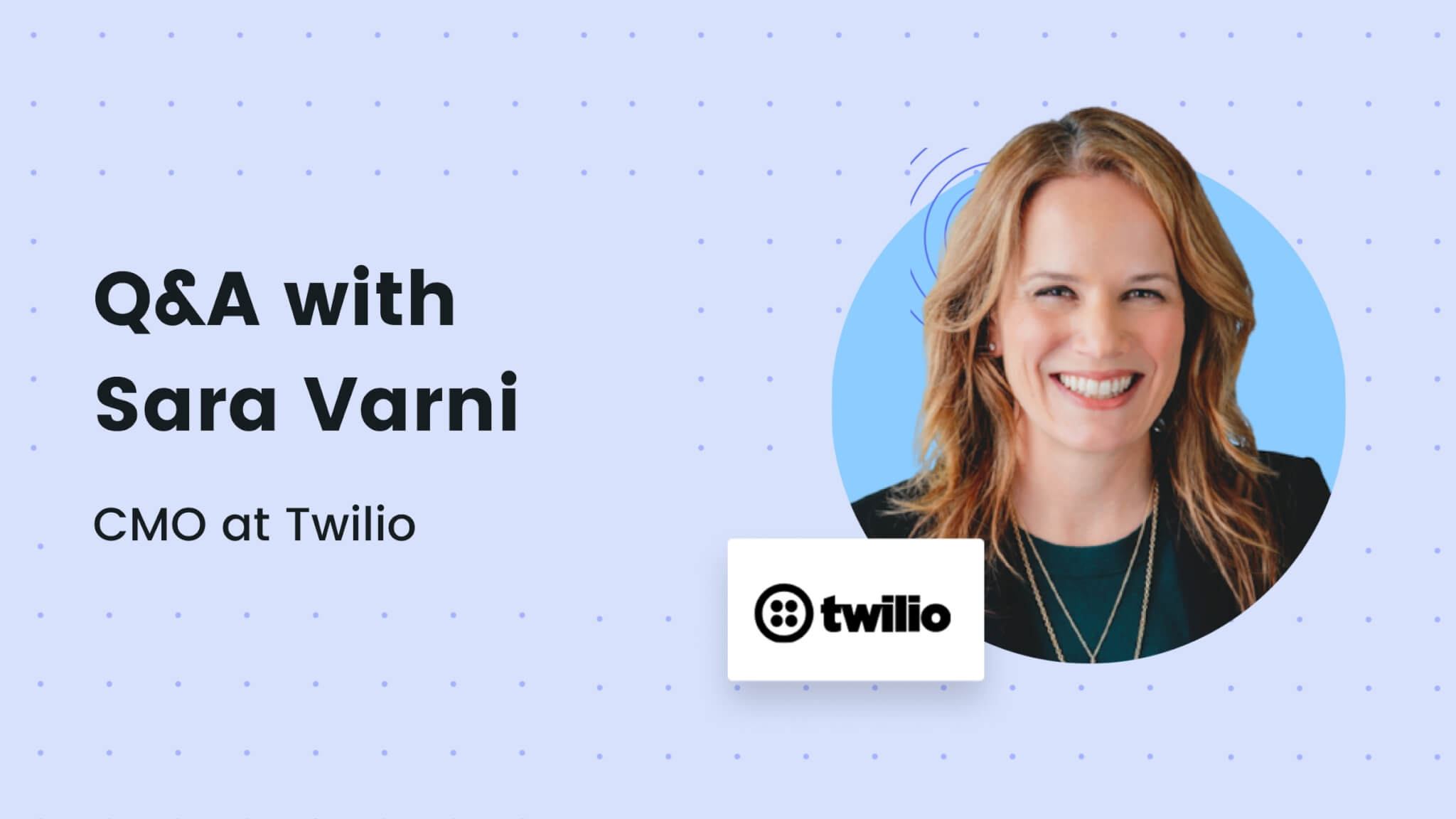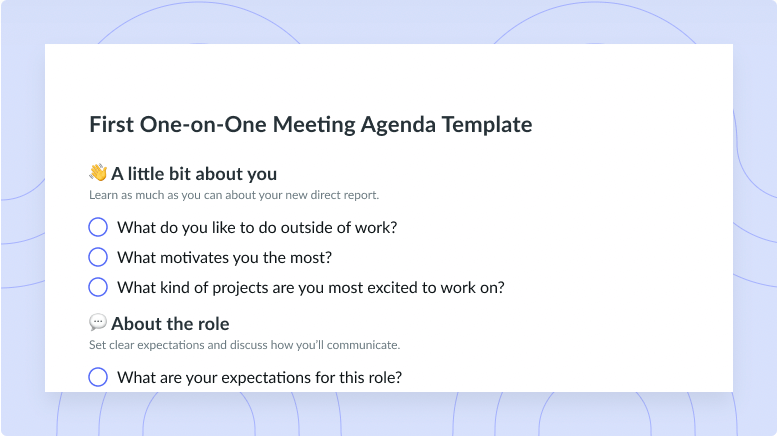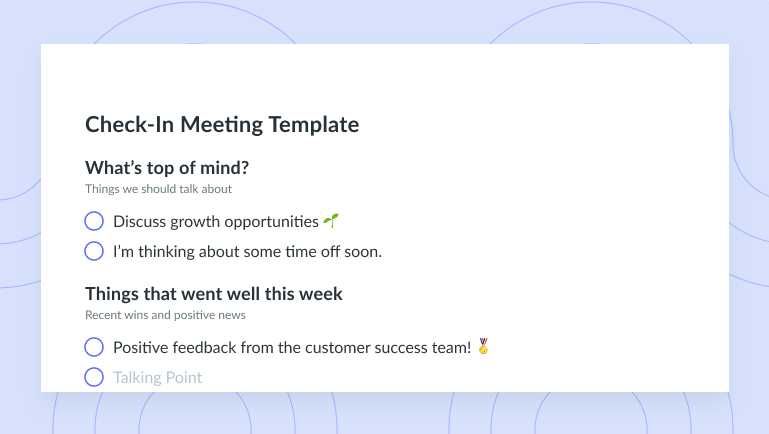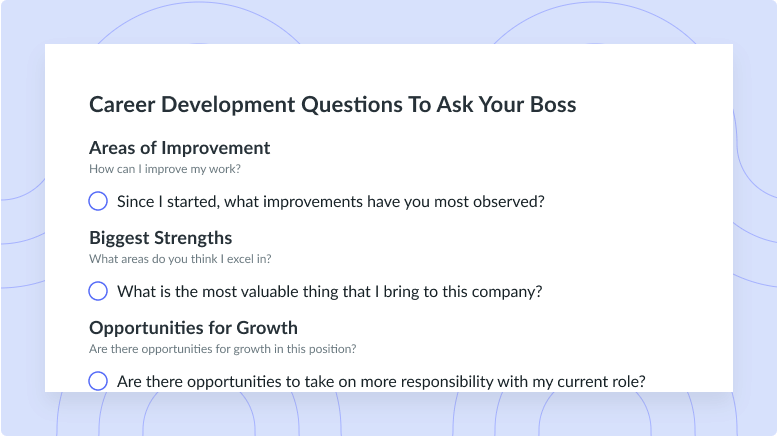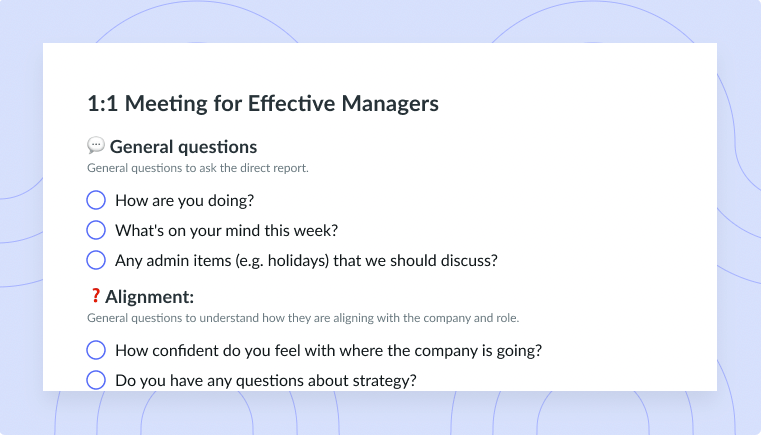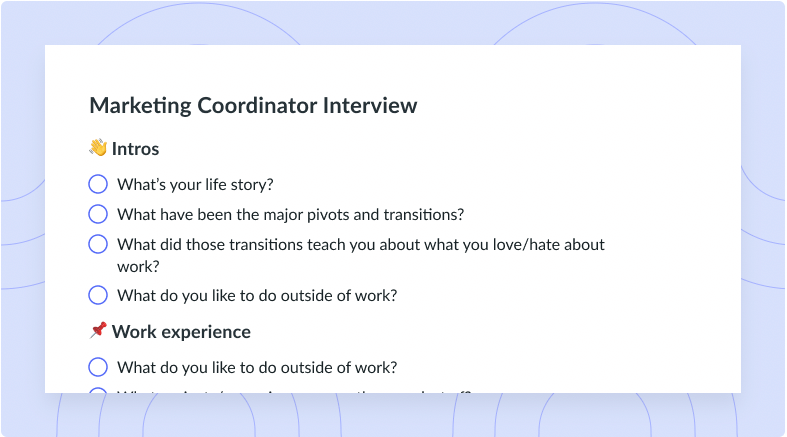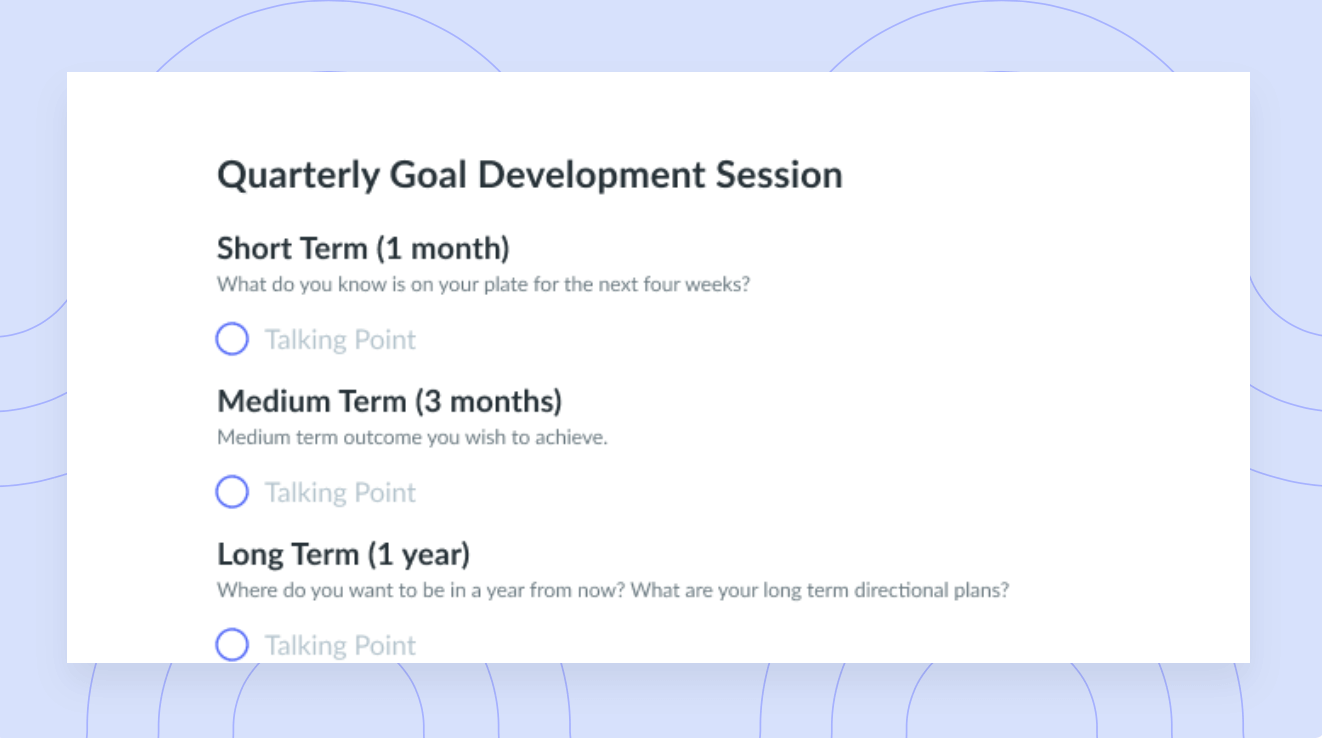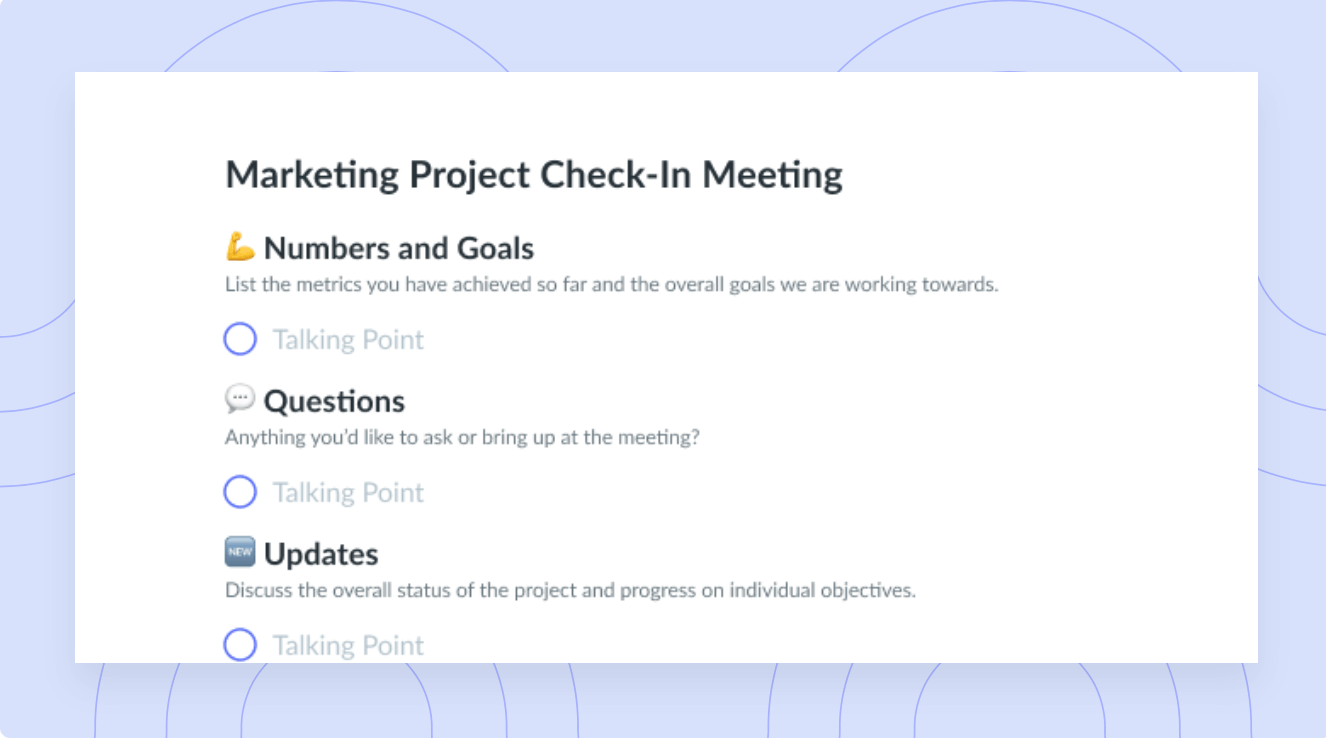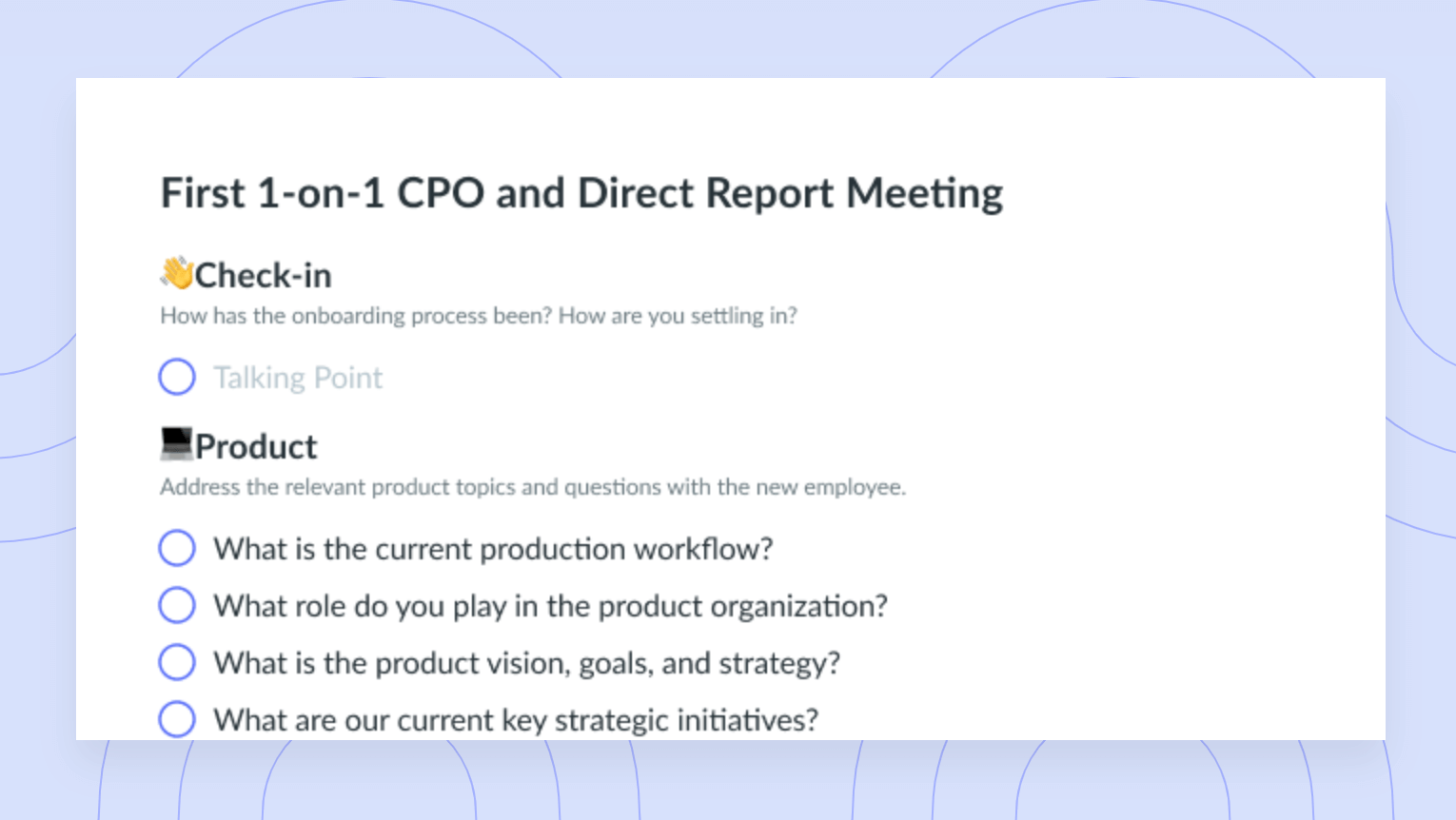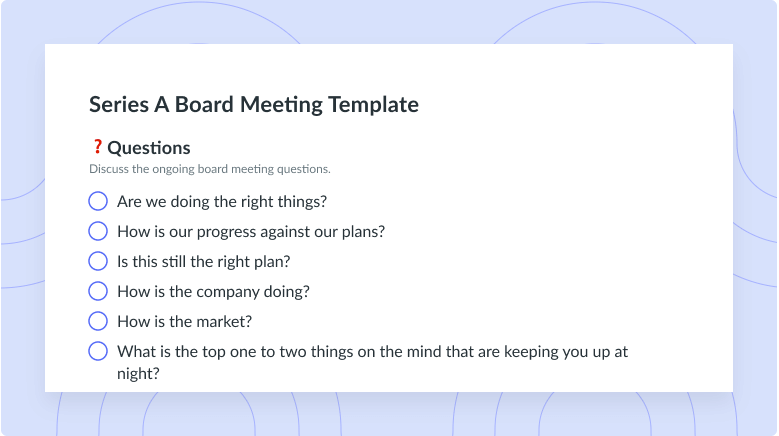Career Conversations With Employees: Questions and Tips for Managers
Find out how the world's best managers structure professional development conversations with their teams.
The world’s best managers care about their direct reports’ development and professional growth. It all goes back to the concept of Servant Leadership — a leadership philosophy that states that the main goal of a leader is to serve their teammates.
More than 100 years have passed since Robert Greenleaf first wrote about this concept, challenging the most common leadership models of the time. However, Servant Leadership is more relevant than ever in today’s fast-paced world, as research shows that employees are more likely to stay at companies that invest in their professional growth:
“Employees used to expect to work for a boss. Now, they’re looking for a coach,” says a recent study by Gallup. “Because they don’t just want to be satisfied with their role or their job. Your employees want personal and professional development, immediately and for the future.”
How can you, as a manager, make sure that your direct reports feel supported and develop professionally? How can you become a servant leader, in practice? The answer: Career conversations.
- What are career conversations?
- Why career conversations are important?
- How can you structure career conversations?
- Follow-up on your direct report’s career goals?
- Career conversation questions
- Time to put the theory into practice
What are career conversations?
Career conversations are ongoing discussions between a manager and their direct report about the skills and steps needed to achieve that report’s professional goals.
As Kim Scott argues in her famous book, Radical Candor, these conversations give managers a detailed understanding of their direct reports’ aspirations, strengths, and motivations to come to work every day:
“To understand a person’s growth trajectory, it’s important to have career conversations in which you get to know each of your direct reports better, learn what their aspirations are, and plan how to help them achieve those dreams,” says Scott.
Russ Laraway, who co-founded Candor, Inc. along with Kim Scott, argues that career conversations are the management tool that accelerates development, enhances engagement and boosts retention in teams.
Why career conversations are important
1 Career conversations boost employee engagement and retention
In a study conducted by Right Management, 82 percent of respondents said they would be more engaged at work if their manager showed more interest in their career progression.
“Regular career conversations would make them more likely to engage with their work, share ideas, and look for career growth and longevity in their current organization,” says the study.
The connection between career conversations and employee engagement is clear: employees are more likely to enjoy their work when their daily tasks and responsibilities align with their long-term career goals.
“Something I learned the hard way was there’s always context to the human behind who’s trying to solve a problem. And if you spend the time and the energy at that moment, understanding that person’s why it’s actually going to be a lot faster to motivate them and get things done,” says Rakmini Reddy, SVP of Engineering, Platform at Slack
There’s a similar connection between career conversations and employee retention. For instance, a study conducted by LinkedIn shows that the top reason why people leave their companies is that they didn’t see opportunities for career advancement.
One of your responsibilities as a manager is to hire and retain top talent. In order to do this, you need to show your direct reports that you care about their development, and provide resources and opportunities that contribute to their growth.
2 Career conversations foster self-awareness in the workplace
Believe it or not, most people don’t spend too much time thinking about their personal values and desired career path.
“We plan a lot of things. We plan our families, plan our weekends, plan our vacations and plan our meals. It’s a little crazy to me that we don’t often put a lot of energy, intentionality, or conscientiousness toward our careers,” says Russ Laraway.
That’s why career conversations are such an important part of servant leadership.
Scheduling specific times to talk about career goals and aspirations will help your direct reports reflect on what’s important for them and what they want to accomplish in their career.
What activities and projects do they enjoy most? What kind of work environments do they prefer? What new skills would they like to learn? Where do they see themselves in ten years? How do their personal values relate to their job?
These are all questions that will help your employees become more self-aware.
3 Career conversations help you develop positive relationships with your team
Asking your direct reports about their aspirations is a great way to get to know them and show that you care personally about them.
As Julie Zhuo, Facebook’s VP of Product Design argues in the book The Making of a Manager, your job as a leader is to understand your fellow teammates’ goals, the projects that are suited to their strengths and interests, and the tasks they need support with.
Learning about these things will help you develop closer relationships with them, as they’ll see you as a coach and mentor – and not only as their boss.
“Think of yourself as a coach who is there to support and help your people reach their goals,” says Zhuo.

Never forget what was discussed
Show your direct reports that you care by remembering what they said during past meetings. With Fellow, you can see a history of every 1-on-1 conversation you’ve had and ensure that you’re staying focused on important decisions and action items.

Career development framework: How can you structure career conversations with your team?
During his time as a Director of Sales at Google, Russ Laraway developed a career conversation model that led to a 10-point bump in engagement scores across the organization. The framework outlines a three-step process to help your employees develop both short and long-term plans for their career.
If you’re trying career conversations for the first time, following this model is a great way to start.
First, choose three consecutive one-on-one slots in your calendar. Then, cover the following three topics in each one of those meetings with your employee:
1 The life story one-on-one
According to Laraway, managers must understand the past and the future in order to help their direct reports grow. This is why he suggests that you start your first professional development conversation with this simple opening question:
“Starting with kindergarten, tell me about your life.”
This will help you understand the life events and stories that have shaped your direct report’s dreams and aspirations. Laraway’s main advice? Focus on changes that people have made and understand why they’ve made those decisions.
“It’s amazing what you can learn from a person’s life story if you pay close attention to and ask about their major pivots and transitions. Why did they make them? What did those transitions teach them about what they love and hate about their work?” says Laraway.
For instance, learning that your direct report has always enjoyed competitive sports will be helpful to understand what type of environments motivate them. Since they are highly competitive, you could come up with targets and ideas to make their work more exciting. If someone says they quit running and started playing soccer because they liked being on a team, you might write down that being part of a team is a motivator for this person.
“Just this first of the three conversations will have a big impact,” says Kim Scott (in Radical Candor). “First, you’ve done more in forty-five minutes to get to know each person who reports to you than you could do in any other way. Next, you’re already better equipped to figure out what kinds of opportunities would be helpful for each person. Finally, you’re more prepared for the next conversation.”
2 Dreams one-on-one
Your second career conversation will focus on dreams and aspirations. Laraway recommends that you start this meeting with one question:
“What do you want the pinnacle of your career to look like?”
This is a hard question for many of us. This is why he suggests asking your direct reports to come up with three to five different ideas.
You can give them some time to think about it by sending the question ahead of time or sharing the meeting agenda using a one-on-one meeting tool like Fellow.
After going over those 3-5 dream jobs, you can collaborate on a list of skills that would help your direct report achieve their goal:
“Now, your job as the boss is to help them think about how they can acquire those skills. What are the projects you can put them on, whom can you introduce them to, what are the options for education?” says Kim Scott.
The final part of the second career conversation involves making sure the person’s dreams are aligned with the personal values they have expressed. Inquiring about the dreams people describe is a key way to push for meaningful conversations.
3The 18-month career action plan
During a conversation about career planning, Sheryl Sandberg told Laraway that everyone needs a long-term vision and an 18-month plan.
“I try to set more personal goals for learning new skills in the next eighteen months. It’s often painful, but I ask myself “How can I improve?” If I am afraid to do something, it’s usually because I’m not good at it or perhaps I’m too scared to even try,” says Sandberg in the book Lean In.
Now that you have an understanding of your direct report’s past and future goals, you can build a relevant and thoughtful action plan for the next 18 months.
You can divide the plan into three different sections: short-term goals (for the next 6 months), medium-term goals (for the next year) and long-term goals (for the next 18 months).
You can follow-up on these goals on a regular basis, or schedule a specific meeting to go over them every six months.
“A healthy career discussion rarely happens all at once. Instead, it is a product of many different times,” says Marcus Buckingham in the book First, break all the rules.

When should you follow-up on your direct report’s career goals?
Most managers have these discussions during their usual one-on-one slots — which, as we have discussed in previous posts, should be scheduled weekly or bi-weekly with each direct report.
Our research shows two common approaches to career conversations. The first approach is scheduling them every six months.
Mathilde Collin (CEO of Front) and Sourov De (co-founder of Stryve) argue that ongoing career conversations have boosted employee engagement in their organizations. Here’s how Collin describes Front’s career conversations framework:
“Every six months, managers and employees meet to discuss career development. Ahead of this meeting, the employee prepares responses to such topics as what he/she likes and dislikes about their current role; careers he/she admires; where he/she wants their career to be in 6 months, 12 months, 2–5 years; and a list of skills, competencies, and experiences that he/she needs to develop.”
Similarly, Sourov De argues that following up on career progression every six months makes employees feel valued and supported, which ultimately increases their engagement and commitment to your company:
“It works pretty well. We haven’t had a full-time employee leave in the 9 years we’ve been in business. That’s a 100% retention rate for our full-time employees. It’s something we’re really proud of,” says De.
On the other hand, some managers prefer to check-in on their direct reports’ goals and progress on a more regular basis. The second approach you can take is dividing your weekly one-on-one meeting into three sections:
- First: Your direct report’s talking points.
- Second: Things you’d like to talk about.
- Third: Updates about your direct report’s progress on the goals you established in the 18-month action plan.
Whether you decide to follow-up on your direct report’s goals every six months or more regularly (during your weekly one-on-ones), the important thing is to always keep those goals in mind when assigning new projects and tasks.
As Marcus Buckingham argues in First, break all the rules, the art of management involves being able to adapt your style to each direct report:
“However you choose to handle these conversations – and each will be unique, according to the potential and the performance of the individual employee – you need to ensure that, over time, two things happen. First, the employee needs to become increasingly clear about his skills, knowledge and talents. Second, he needs to understand, in detail, what this next step could entail and why he thinks he would excel at it.”
Buckingham argues that you can coach your direct report to come to these understandings by asking the following career discovery questions:
Career conversation questions
- How would you describe success in your current role?
- What do you do that makes you as good (at your role) as you are? What does this tell you about your skills, knowledge and talents?
- Which part of your current role do you enjoy the most? Why?
- Which part of your current role are you struggling with? What does this tell you about your skills, knowledge and talents? What can we do to manage around this? Training? Positioning? Support system? Partnering?
- What would be the perfect role for you? Imagine you are in that role. It’s 3 pm on a Thursday. What are you doing? Why would you like it so much?
Other questions you can ask your direct reports (from our list of 200 one-on-one meeting questions for managers) include:
- What do you love doing the most in your work?
- Do you feel that you’re advancing in your career?
- In the future, do you see yourself as an individual contributor or in management?
- What are some things you can do to work towards that goal?
- What are 3 long term professional goals that you have? Why are these important to you?
- What work are you doing here that is most in line with your long term goals?
- Let’s imagine that we are 10 years in the future and our organization has grown exponentially in the process. What would you like to be doing here?
- Have any of your goals changed since the last time we talked about this?
Time to put the theory into practice
Now that you know about the importance of having career conversations with your direct reports, it’s your turn to be a servant leader and help them grow. We hope these career conversation tips and questions help you understand and motivate the people on your team.
Career conversations will take time – but as Kim Scott, Russ Laraway, and many other great leaders argue, they will generate some of the most enjoyable conversations you have as a manager.
“Helping people clarify values and dreams and then aligning them as closely as possible with their current work will invariably make your team stronger,” says Scott. “Each individual will be more successful and happier, and together you’ll achieve results unexpected in common hours.”
